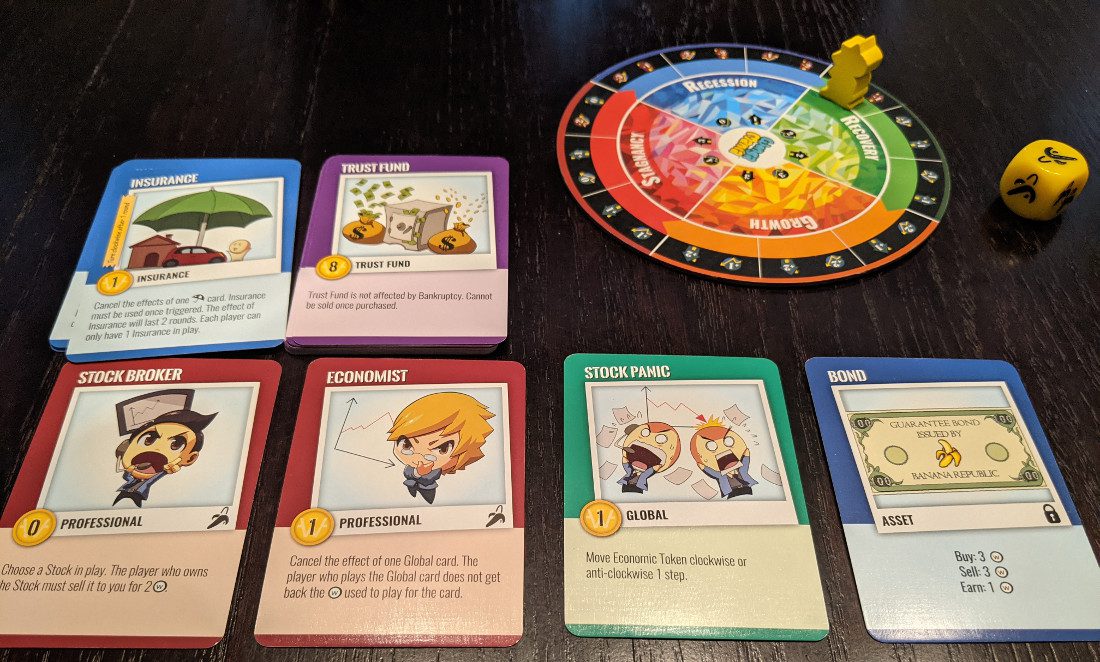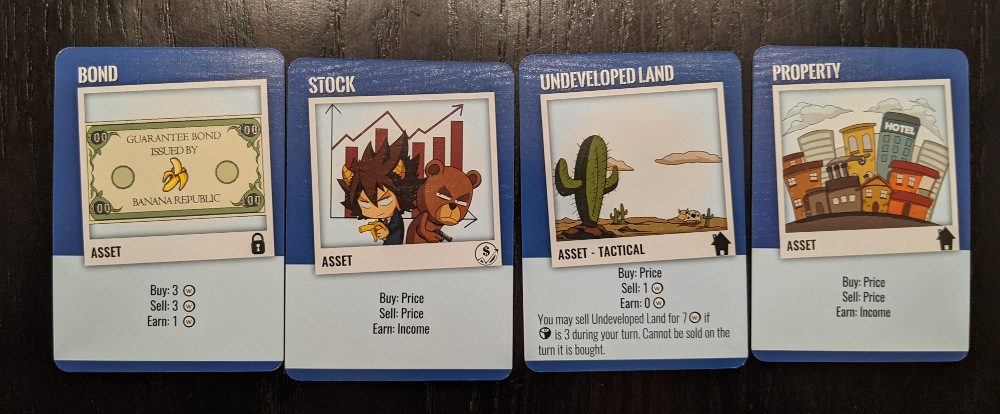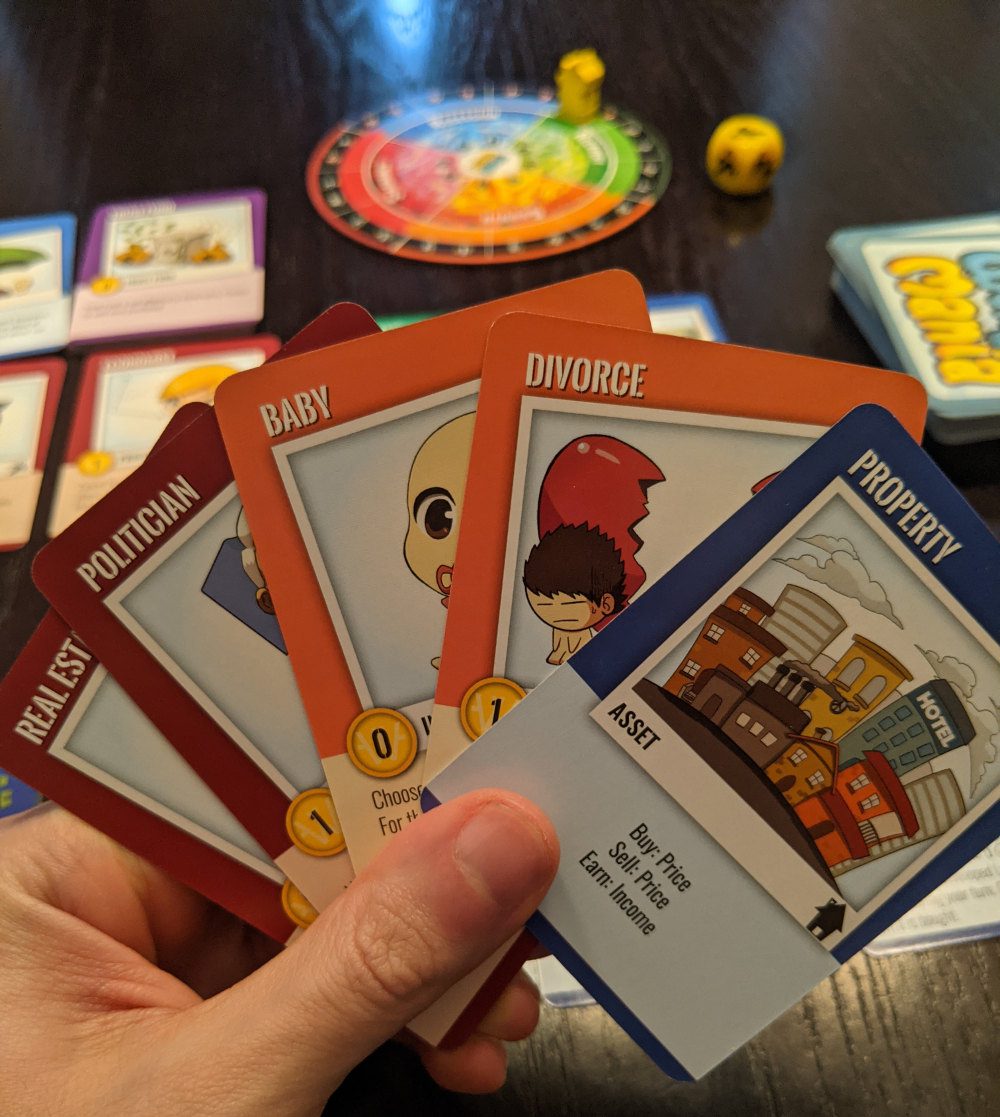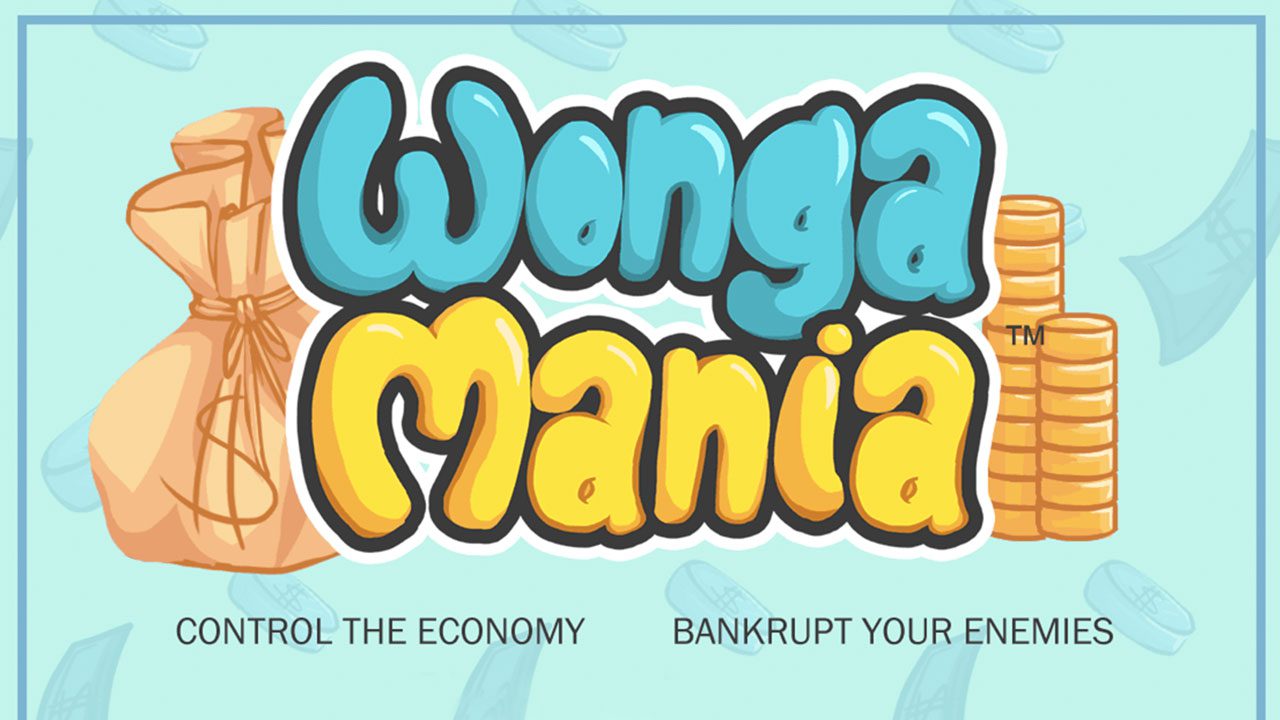Disclosure: Meeple Mountain received a free copy of this product in exchange for an honest, unbiased review. This review is not intended to be an endorsement.
Writing long-form reviews of board games requires breaking down the execution of the rules and communicating that information to someone who has no idea what the game is about. This process would often involve playing the game several times to sort out the details and note any potential issues. However, there are times when a game doesn’t have much to discuss, and today’s card game Wongamania fits that description.
It is Capital Gains Studios’ first entry into the board game market. Their goal is to create edutainment board games focused on the financial world. A few weeks ago, I reviewed Cryptocurrency, a game teaching the players about the chaotic and speculative nature of the Cryptocurrency market. I praised how it implemented its mechanisms and tying it well with its theme, but also warned that the numerous card draws would annoy the vast majority of players. Since I’m an objective reviewer, anyone who disagrees with my review is wrong.

The Big Picture
Wongamania’s theme is far broader. It aims its sights towards the business cycle and how it could affect your financial well-being. You will invest in assets such as properties, stocks, and bonds to help with your income. As the money grows in your bank, you will spend it, get more assets, buy some insurance, or deposit into a Trust Fund.
Trust Fund is the most important asset you can buy. Besides giving you a smack load of points, a bankruptcy cannot remove them. This isn’t Monopoly, so bankruptcy doesn’t eliminate you, but it will set you back. You do need to be careful because other players will use Incident and Global cards to mess with you. Incident cards target other players while Global cards disrupt the business cycle. Yes, this is a take-that game.
Like any other take-that game, some cards fudge around with the rules. There will be four face-up cards known as Breaking News. If you want to take a card from Breaking News, you need to discard one card from your hand. Since this is a card game, you want to draw more cards. To do that, you have to draw from your personal bank.
The bank is your personal face-down deck of cards, and when you want to increase your hand size you draw from there blindly. I like this system because it forces a dilemma situation where you want to deposit your cards in your bank to buy Trust Funds, but not withdrawing them limits your choices. How do you get more cards in your bank? At the start of your turn, you get income based on the current Business Cycle.

The game’s most exciting bit is the Business Cycle. It’s a circular board divided into four sections representing the four business cycles: Growth, Stagnancy, Recession, and Recovery. At the start of the First Player’s turn, they roll a die and move a cute yellow Debtzilla meeple around the circle. Depending on what stage of the business cycle it lands on, it will determine the income of your assets as well as the prices. The idea behind this is you don’t want to hold onto assets during a negative business cycle since it will destroy your income, but you do want to buy them since they are at fire-sale prices.
Honestly, that’s the entire game. Buy low, sell high. I can’t say this isn’t accurate because this is how investments tend to work. Since everyone knows the game plan, the only difference between the players is what they drew.
Groundhogs All Over Again
Every game follows the same path. At the start, everyone will buy assets to build their portfolio if the business cycle is in favor, or play Global cards to manipulate the cycle. Once the assets are bought, the money will come in via income or sales during the positive cycles. After reaching at least 8 dollars, they will buy a Trust Fund. Do this three more times and the game ends.
Whoever has the most points, which is based on Trust Funds, Asset Value, and money in the bank, wins.
The issue with this entire setup is everyone knows what to do, and the only obstacle is card draws. Since this game has take-that elements, then whoever becomes the leader of the game will face the predictable fate of being slapped around with Incident cards. Because of this structure, it leads to a dry experience that is as exciting as unsalted wheat thin.
The worst part about this is I fully understand what the designer was getting at. As someone who has worked with investments for over a decade, what’s shown here isn’t wrong. Incidents such as divorce, car accidents, or critical illness are a major blow to your financial health, and they will step on you without warning. Global events such as debt crises or housing bubbles will influence the economy, and they do come out of the blue. Look at the COVID-19 pandemic that has hurt many small businesses and forced quite a few to declare bankruptcy.

Shuffle and Draw
Randomization itself isn’t a problem. One of my favorite genres is deckbuilders, a genre centered around drawing a hand of cards. Like any other game designer tool, randomization requires some skill to wield. The problem with Wongamania is it uses randomness as an obstacle to a very obvious puzzle.
Let’s compare to one of their later titles, Cryptocurrency. Cryptocurrency has random elements bursting from the seams, yet it manages to bind everything together. Instead of being an annoying obstacle to block you from a victory, it’s a fog of war that obscures your vision. You are never fully confident with any choice you make, yet you are given enough information to know what you are getting yourself into. Throw in a network of decisions you have to deal with every turn, such as your team setup, what currencies to buy, or what to mine, and you have an interesting little game. Whereas Wongamania uses randomization as a speed bump, Cryptocurrency demands you to take advantage of a chaotic situation. There is a huge distinction between these two playstyles.
As much as I love the idea of board games teaching people the financial system, Wongamania isn’t a prime example of this. It is a vanilla take-that game washed with the colors of the business cycle and basic economics. There are some interesting quirks, yet not enough to create a truly engaging experience. If the edutainment idea interests you, later games from this company such as Dirty Money and Cryptocurrency are far better options. This is their first game, and it feels like it.
You can purchase a copy of Wongamania on Amazon US










